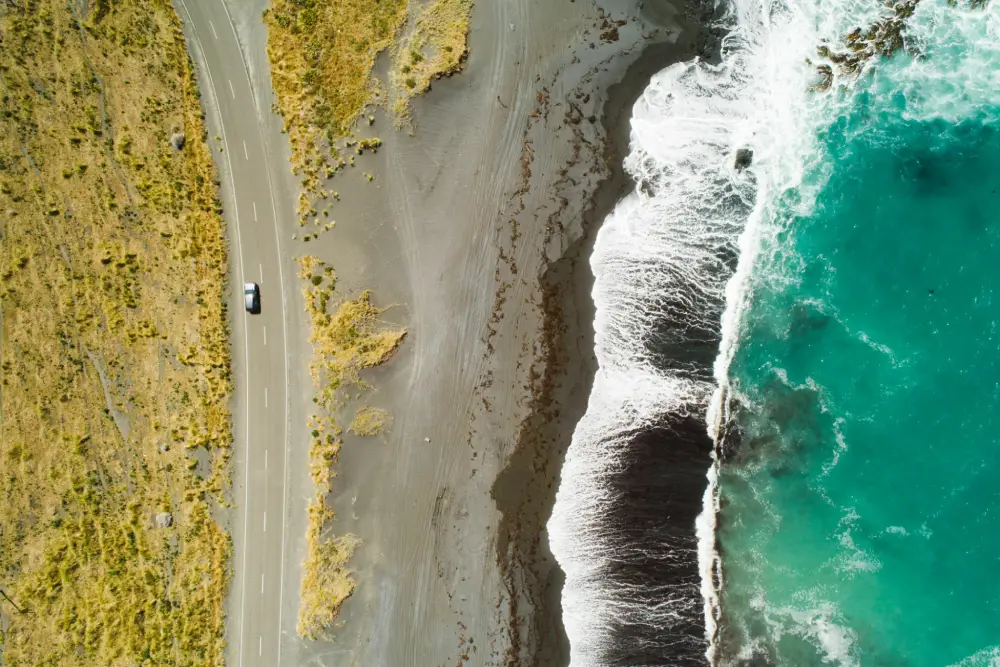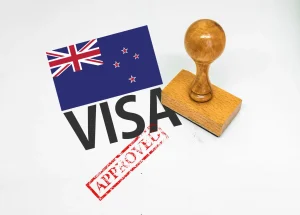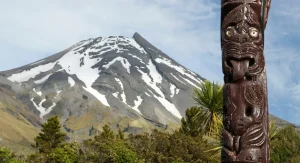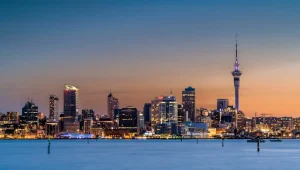
New Zealand visa: Plan your New Zealand holiday
If you are planning your New Zealand holiday with New Zealand, you’re in the right place. If we talk about natural beauty, an abundance of cultural traditions, and a fascinating past await you in New Zealand. There is something for everyone, from the beaches and forests of New Zealand to the snow-capped summits of the Southern Alps. Planning is essential, though, as is making sure you have all the required travel paperwork—like a valid visa for New Zealand—ready to go. Before your trip to New Zealand, you must be aware of the visa requirements. To visit New Zealand as a tourist, you might need to get a New Zealand tourist visa, depending on the rules and legislation of your home country. Getting your visa application processed quickly and having all the required paperwork ready is the first step towards a stress-free trip to New Zealand.
Here are some tips for planning your New Zealand holiday:
It’s crucial to organize your travel schedule around your interests in addition to obtaining a visa. Whatever your interests like hiking, exploring different cultures, or taking road trips. There is something in New Zealand for you. Every place in New Zealand has its distinct charm and appeal, whether you’re seeking an adrenaline-filled weekend in Queenstown or a worldly getaway in Auckland. Follow us as we take you on a journey that summarizes everything that New Zealand has to offer, crafting an immersive vacation experience that will make you feel as though you’ve traveled to a different planet and ensuring that the process of obtaining a visa is as seamless as possible. Prepare to be amazed by the splendor of this magnificent country, where everything from cultural diversity to the beauty of the natural world can be found around every corner.
1. Research and Itinerary Planning
Long White Cloud Land Exploration: The North Island and the South Island are the two separate islands that make up New Zealand. Every island has its unique attractions, so find the locations and activities that interest you, whether you want to experience a bustling metropolis, go on an outdoor adventure, or become fully engaged in Maori culture.
Itinerary Highlights:
- North Island: Wellington’s vibrant capital, the stunning Bay of Islands, Auckland City, and the geothermal marvels of Rotorua.
- South Island: Queenstown’s adventure sports, the calm waters of Lake Tekapo, the captivating metropolis of Christchurch, and Milford Sound in the Fiordland National Park.
2. New Zealand Visa Application

Visa Requirements: Make sure you have all the required documents, including a valid New Zealand visa, before leaving on your vacation. Your eligibility for a visitor visa may depend on your nationality. With this visa, you can go to New Zealand for a certain amount of time.
Applying for a New Zealand Visa:
- Online Application
- Submit Requirement Document
- Pay visa fees
- Wait for visa processing time
3. Accommodation and Transport
- Choosing Accommodation: There are several choices for accommodation in New Zealand, ranging from luxurious resorts and hotels to affordable hostels and rustic bed & breakfasts. Be cautious in planning and reserving your accommodation following your demands and budget, especially during periods of high travel demand.
- Transport: Consider your route plan for moving from point A to point B in New Zealand. You can take advantage of the country’s quick bus and train connections, rent a car, or take a domestic flight home. When you rent a car, you can travel to far-off places with greater flexibility, and public transportation makes moving between cities simple.
4. Adventures and Experiences
- Adopting Adventure and Nature: There are some of the most exciting activities and breathtaking natural sights in the world in New Zealand. There is something for everyone, whether your interests are in hiking in Tongariro National Park, bungee jumping in Queenstown, cruising the fjords of Milford Sound, or experiencing a traditional Maori Marae.
- Safety and Insurance: Purchase travel insurance that covers medical emergencies, trip cancellation, and adventure activities, and abide by safety precautions.
5. Cultural Immersion and Etiquette

- Maori Culture: Visit traditional locations with traditional forms of performances (such as haka dances), and engage respectfully with indigenous communities to gain an understanding of New Zealand’s rich Maori culture.
- Reliable Travel Practices: Encourage eco-friendly tourist strategies that honor the environment, cut down on waste, and boost regional companies and economies.
How many days is enough for New Zealand?
The areas you want to see and the kind of experience you want to have will determine how long your vacation will be. You should have ample time to see both the North Island and the South Island if you travel for two to four weeks. A vacation lasting at least 7–10 days, with an emphasis on specific areas or attractions, will offer you a taste of New Zealand’s magnificence if you’re on a tight schedule. Longer travels provide you the chance to leisurely get to know the nation’s cities, parks, and picturesque locations while also exploring its unique landscapes, culture, and adventure activities.
In which month is New Zealand the most affordable to fly to?
June to August is New Zealand’s winter season, making it the most affordable month to go. Because there is typically less demand for travel, particularly from foreign visitors, airfares are typically less expensive at this season. It’s crucial to remember that New Zealand’s winter season also happens to be the country’s busiest ski season, which could have little effect on airfares to well-liked ski resorts. If you want to go on a tight budget, think about booking flights in the spring (from September to November) or autumn (from March to May). These shoulder seasons are a nice balance between affordability and favorable conditions because they have smaller crowds and milder weather along with reasonable fares.
What is the estimated cost of a trip to New Zealand?
The duration of your stay, the kind of lodging you select, the mode of transportation you choose, the kinds of activities you plan to engage in, and your culinary preferences can all have a big impact on how much a trip to New Zealand costs. A person’s average budget for a brief vacation in New Zealand may vary. This covers everything, including travel, accommodation at luxurious hotels, food, and local transit. Adventure activities or sightseeing trips can be thought about. You’ll probably need to pay extra if you want to enjoy some of the greatest experiences that New Zealand has to offer or if you want a more luxurious stay.
Is eating out expensive in New Zealand?

Depending on your location and preferred dining style, there are differences in the cost of dining in New Zealand. Restaurants can be pricey overall, especially those in popular tourist destinations or upscale dining establishments. The good news is that there are lots of inexpensive options available, such as dining at local eateries, food trucks, cafes, and restaurants. Additionally, you have the option to cook for yourself, which might help you save money—especially if you’re a budget-conscious visitor to New Zealand.
What is the best way to tour in New Zealand?
The best way to travel to New Zealand will primarily depend on your preferences and level of flexibility. If you wish to travel independently across the nation or rent a car to get to more distant locations, self-driving is a fantastic alternative. On the other hand, guided tours come with an itinerary that is well-planned, convenient, and local expertise. In the breathtaking landscapes of New Zealand, hiking or cycling vacations provide an exhilarating experience. Selecting a tour type should be based on your personal preferences, convenience, and adventurous desires, as each tour type offers benefits specific to certain travel styles.
What are the best months to visit in New Zealand?
In New Zealand, the shoulder seasons are autumn and spring, when there are fewer tourists, nice weather, and stunning scenery. Autumn is a season of blooming flowers, lovely leaves, and comfortable temperatures. New life, vibrant colors, and a lot of opportunities for nature exploration are all brought about by spring. In summer months of December to February are the warmest due to extended daylight hours and pleasant weather. Now is the ideal time to visit New Zealand’s beaches and enjoy the breathtaking landscape.
Is New Zealand expensive to spend holidays?
New Zealand travel can be costly, particularly when it comes to accommodation, transportation, and certain activities. The cost of accommodation varies based on location and season, and options range from budget hostels to rich luxury hotels. Your budget may also be significantly increased by transportation costs, such as domestic flights or rental automobiles. Nature reserve exploration and hiking might be inexpensive or even free, while adventurous activities and organized tours can be expensive. Dining out can increase the cost of your vacation, especially in popular tourist destinations or upscale eateries. Don’t panic, with a little preparation, you can find reasonably priced accommodation, food, and entertainment options. If you caught or got a puzzle in your visa application, you can contact us or email us for more read.